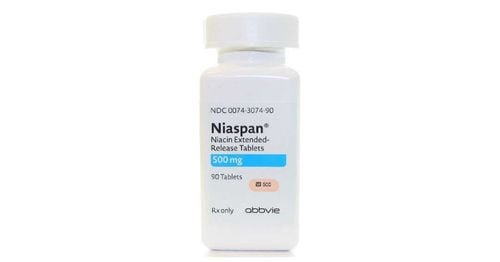This is an automatically translated article.
Flaxseed oil and fish oil are both widely promoted for their health benefits. Both oils provide omega-3 fatty acids and have been shown to reduce the risk of heart disease, such as high blood pressure. However, there are still some notable differences between the two oils.1. What is flaxseed oil?
Flax is an ancient plant that has been cultivated since the beginning of civilization. First used in the United States to make fabrics for clothing and other textile items.The flax plant contains nutritious seeds commonly known as flaxseeds. Flaxseed oil is harvested by cold pressing ripe and dried flaxseeds.
Flaxseed oil can be used in many different ways. This oil is commercially available in liquid and capsule form.
Countless studies have linked flaxseed oil to powerful health benefits, potentially providing high levels of heart-healthy omega-3 fatty acids.
2. What is fish oil?
Fish oil is one of the most commonly consumed dietary supplements on the market. This oil is made by extracting the oil from fish tissue.Supplements are often made with oils extracted from fatty fish, such as herring, mackerel or tuna, which are particularly rich in omega-3 fatty acids.
The American Heart Association (AHA) recommends that users eat a variety of fatty fish at least twice a week to get the heart health benefits of omega-3 fatty acids. However, eating fish regularly is not always convenient for many people. Therefore, fish oil supplements can help users consume adequate omega-3 fatty acids.
Common fish oil supplements contain 1,000 mg of omega-3 fatty acids, roughly the same ratio as a 3-ounce (85-gram) serving of fatty fish.
Like flaxseed oil, many of the benefits of fish oil seem to come from its omega-3 fatty acids.

Dầu cá là một trong những sản phẩm dinh dưỡng được sử dụng chế độ ăn uống được tiêu thụ phổ biến nhất trên thị trường
3. Comparison of Omega-3 . content
Omega-3 fatty acids are essential fats, so the body needs to get this nutrient through foods in the daily diet.Omega-3s offer many health benefits, such as reducing the risk of heart disease, reducing inflammation and improving mood.
Fish oil and flaxseed oil both contain rich amounts of omega-3 fatty acids. The main omega-3s in fish oil are eicosapentaenoic acid (EPA) and docosahexaenoic acid (DHA).
Typically, regular fish oil supplements contain 180 mg of EPA and 120 mg of DHA, but the amounts vary depending on the supplement type and brand.
On the other hand, flaxseed oil contains an omega-3 fatty acid called alpha-linoleic acid (ALA).
EPA and DHA are mainly found in animal foods like fatty fish, while ALA is mainly found in plants.
The adequate intake for ALA is 1.1 grams per day for adult women and 1.6 grams per day for adult men.
In just 1 tablespoon (15mL), flaxseed oil contains up to 7.3 grams of ALA, far exceeding the body's daily needs.
However, ALA is biologically inactive and needs to be converted into EPA and DHA for the body to use. While ALA is still an essential fatty acid, EPA and DHA are associated with more health benefits. In addition, the conversion from ALA to EPA and DHA is quite inefficient in the human body.
For example, one study found that only 5% of ALA is converted to EPA and less than 0.5% of ALA is converted to DHA in adults.
4. Common interests

Bổ sung các loại dầu như dầu cá và dầu hạt lanh đã được chứng minh là làm giảm huyết áp ở người lớn
Many studies have found that both flaxseed oil and fish oil can have health benefits on the cardiovascular system.
Specifically, oil supplements like fish oil and flaxseed oil have been shown to lower blood pressure in adults, even in small doses.
Additionally, fish oil supplementation is strongly associated with lower triglycerides. What's more, fish oil supplements also improve HDL (good) cholesterol and can lower your blood triglycerides by up to 30%.
Flaxseed oil may also have beneficial effects on cholesterol levels when taken in supplement form. Several studies have shown that flaxseed oil can be effective in lowering bad LDL cholesterol and increasing good HDL cholesterol
4.2 Skin health Flaxseed oil and fish oil are both beneficial for the body's skin , largely due to the omega-3 fatty acid content in the oil.
Many studies have shown that fish oil supplements can improve a number of skin disorders, including dermatitis, psoriasis, and skin damage caused by ultraviolet (UV) exposure.
Similarly, flaxseed oil can aid in the treatment of many dermatological disorders.
For instance, a small study in 13 women found that eating flaxseed oil for 12 weeks improved skin properties like skin sensitivity, hydration, and smoothness
4.3 Inflammatory diseases Chronic inflammation is associated with an increased risk of conditions such as diabetes and Crohn's disease.
Controlling inflammation can reduce symptoms associated with these diseases.
Fish oil has been shown to have anti-inflammatory properties in studies, which can be attributed to the omega-3 fatty acid content in the oil.
For example, fish oil has been linked to reduced production of inflammatory markers called cytokines.
Furthermore, numerous studies have documented that fish oil has beneficial effects on inflammation associated with chronic conditions, such as inflammatory bowel disease, rheumatoid arthritis, and lupus.
5. Effects of Flaxseed Oil
In addition to the health benefits shared above with fish oil, flaxseed oil may also be beneficial in treating digestive symptoms.Studies show that flaxseed oil can be helpful in treating both constipation and diarrhea.
An animal study demonstrated flaxseed oil to have both laxative and anti-diarrheal effects.
Another study found that taking 4 ml of flaxseed oil daily improved bowel regularity and stool consistency in people with end-stage kidney disease on dialysis.
6. Effects of fish oil

Dầu cá có thể giúp điều trị rối loạn hành vi ở trẻ em
For example, fish oil has been shown to improve symptoms of a number of mental health disorders, including depression, bipolar disorder, and schizophrenia.
In addition, fish oil can help treat behavioral disorders in children.
Many studies have linked fish oil supplements with improvements in hyperactivity, attention, and aggressive behavior in young children.
7. Which option is better?
Although both of these oils have positive effects on the health of the user. However, while each oil has its own benefits, when it comes to overall benefits, fish oil may have more advantages.Compared to flaxseed oil, only fish oil contains the active omega-3 fatty acids EPA and DHA. Therefore, taking fish oil rich in EPA and DHA will provide more clinical benefits than taking flaxseed oil. In addition, many studies show that fish oil has anti-inflammatory effects and improves indicators of heart disease risk, such as lowering triglycerides and improving cholesterol levels.
However, fish oil supplements may not be right for everyone.
For example, some fish oil supplements may contain small amounts of fish or shellfish protein.
As a result, many fish oil supplements contain warnings for consumers who are allergic to shellfish or animals. Therefore, flaxseed oil may be a preferable choice for people with fish or shellfish allergies.
Additionally, flaxseed oil may also be more suitable for people following a vegetarian or vegan diet.
Please dial HOTLINE for more information or register for an appointment HERE. Download MyVinmec app to make appointments faster and to manage your bookings easily.
Reference article: Healthline.com












